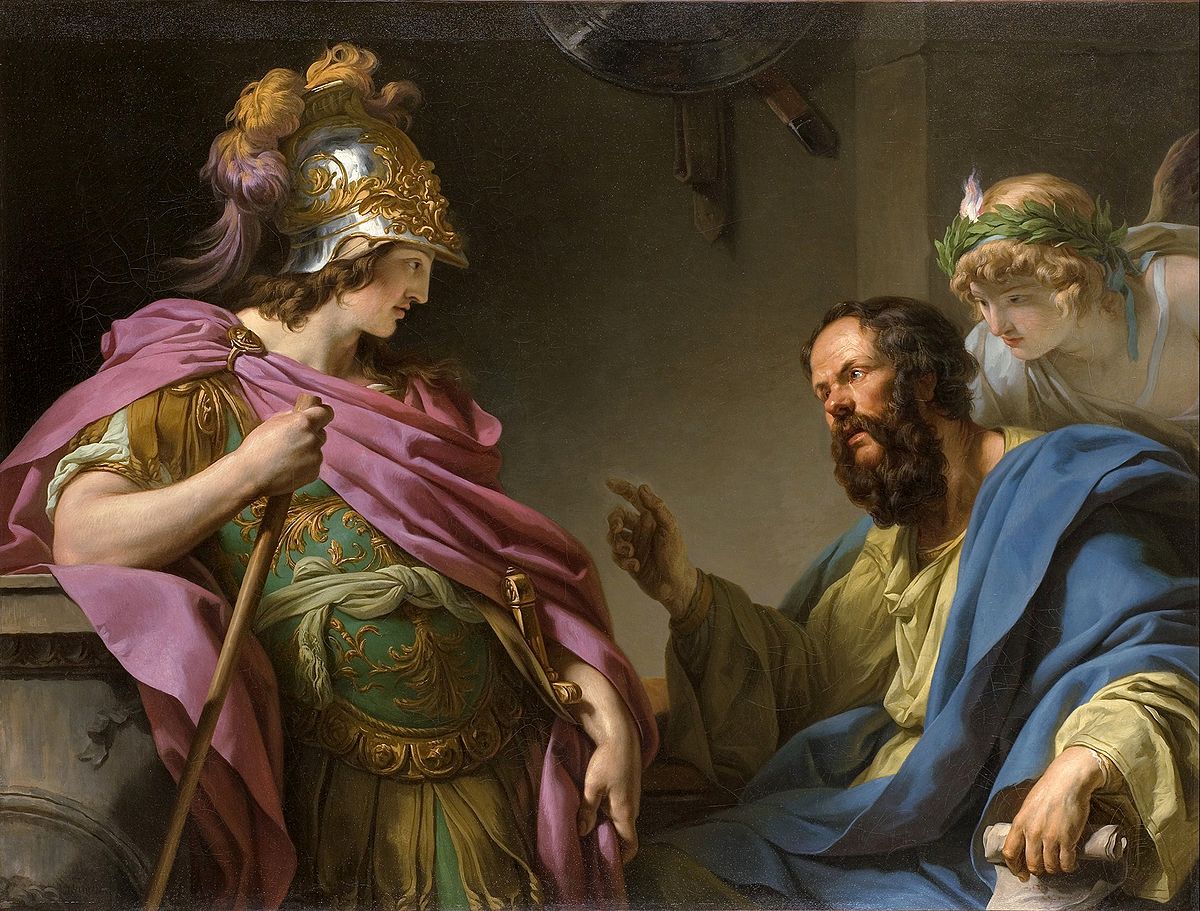The peace officially lasted only five years (421-416 B.C.), years that saw the gradual rise to eminence in Athenian politics of Pericles’ cousin, Alcibiades, a brilliant, ambitious, dissolute, and unstable youth, who initially succeeded the demagogic Cleon as leader of the lower-class war party against the restrained and unglamorous Nicias. During that time Athens underlined its ruthlessness by killing all the adult males of the island of Melos and enslaving the women and children as a punishment for Melos’s insistence on staying neutral in the war (416). In deciding to send a large naval expedition to Sicily to attack Syracuse, the Athenian assembly once again followed Alcibiades’ lead.
Yet the project bore no real relation to the politics of mainland Greece, and the Athenians had little sound intelligence about Sicily. Just before the expedition sailed, a religious scandal broke out in Athens, and Alcibiades was suspected of having mutilated sacred statues. He went off to Sicily as co-commander, with the unwilling Nicias, of the greatest naval expedition ever sent out by a Greek polis. But before the fleet reached Syracuse, Alcibiades was recalled to stand trial; he fled to Sparta.
The siege of Syracuse was long, drawn out (414- 413), enormously expensive, and a total failure. Nicias and other leaders were captured and killed, and the Athenians lost two hundred ships. Meanwhile Sparta, now advised by Alcibiades, renewed the war at home and sent troops to help the Syracusans. The Spartans also stirred up the Ionian cities to revolt against Athens. The Persian satraps in Asia Minor, hoping to regain seacoast towns, joined with the Spartans, and Alcibiades, who had worn out his welcome in Sparta, turned to the Persians.
Ironically enough, the balance of power between the two great Greek poleis that in 490 and 480-479 had successfully expelled the Persians from Greece was now, in 412, held by the Persians. Alcibiades tried to black¬mail the Athenians by telling them that if they would install an oligarchic government he would return and exercise his influence with the Persians on their behalf; meanwhile the Spartans promised the Persians that, in exchange for paying for their fleet, they would permit the cities of Ionia to fall into Persian hands once more.
Civil strife created a turbulent atmosphere in Athens. A group of conspirators prevailed on the assembly to appoint a team to draft a new, though still oligarchic, constitution, and then persuaded a rump session to accept the recommendation that the existing officials be dismissed. A group consisting of five presidents appointed one hundred associates, who in turn drew in three hundred more, and this became a new Council of State, which ousted the former Council of Five Hundred in an armed but bloodless coup d’etat. The new Four Hundred could summon at will a new Five Thousand, ostensibly to replace the traditional assembly of all the citizens. The democratic forces, however, still controlled the fleet.
The leading oligarchs would now have liked to proceed at once to peace with Sparta, and probably intended that the more moderate Five Thousand should never be summoned. However, the citizens deposed the Four Hundred and elected the Five Thousand-all from the upper class-which governed the city from 411 to 410, when, after some Athenian successes at sea, democracy was restored.
Returning from exile in 407, Alcibiades commanded Athenian naval forces until the Spartan fleet defeated him in 405. He then retired to his estates along the Hellespont, where he was murdered by Spartan and Persian agents. His career vividly illustrates the vulnerability of the Athenian democracy to a plausible, charming, talented scoundrel and to restless factionalism and narrow competitiveness. Another weakness-the temptation to yield to impulse-was displayed soon afterward, when the Athenians had defeated the Spartan fleet at Arginusae but had suffered heavy casualties, and the Council of State was intimidated by the mourning families of the drowned soldiers into ordering the collective executions of six generals for not rescuing the troops in the water.
In the final naval action of the war, the Spartans captured most of the Athenian fleet, deserted on a beach in the Hellespont while the sailors were hunting food on shore at Aegospotami in 405. The Spartan infantry rounded up thousands of Athenian prisoners, of whom three thousand were executed as direct reprisal for recent Athenian atrocities. Starving, without money, blockaded by land and sea, its alliance in ruins as the allies had revolted or joined the Spartans, Athens had to surrender unconditionally to the Spartan leader Lysander. Some of the Spartan allies wanted to punish the Athenians as the Athenians had punished the Melians, but the Spartans refused. Instead, the Athenians demolished their long walls, abandoned their empire, surrendered their fleet, and agreed to follow Sparta’s lead in foreign policy.

